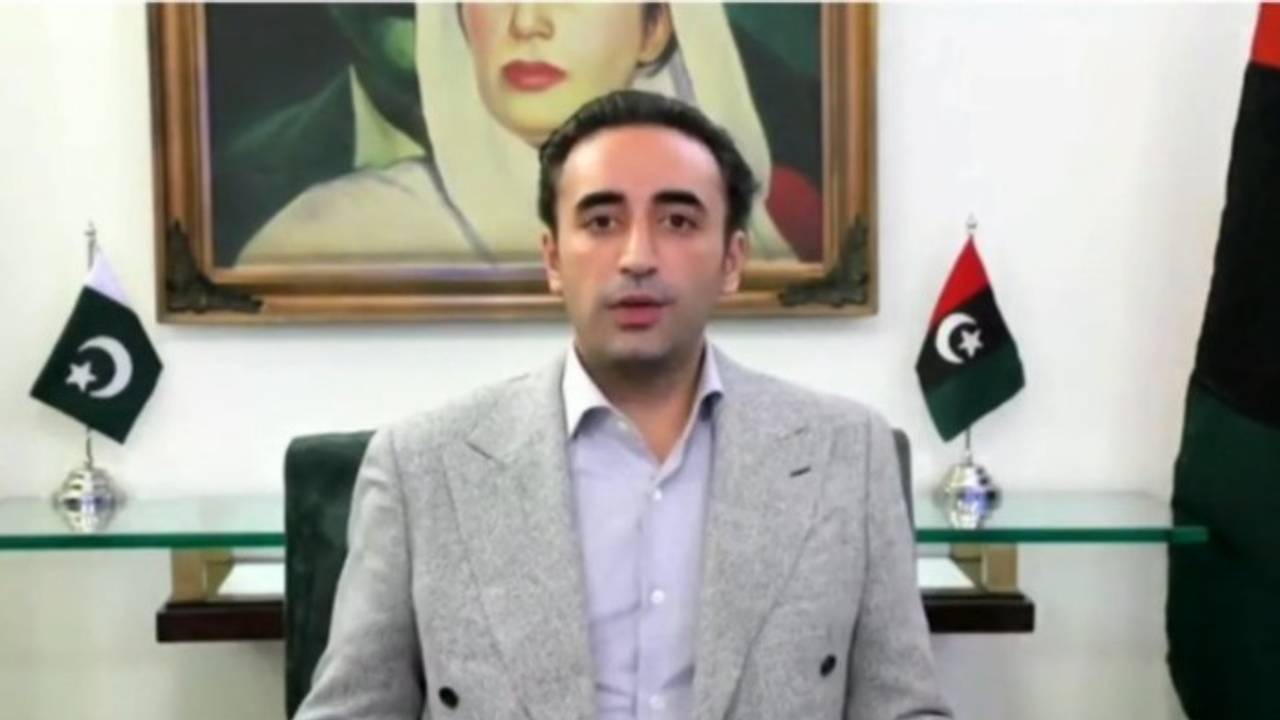A day after Pakistan Army Chief Asim Munir’s nuclear threat from US soil, Bilawal Bhutto threatens war against India over the Indus Water Treaty, exposing Islamabad’s aggressive posturing and military-driven politics.
Just a day after Pakistan Army Chief Field Marshal Asim Munir publicly threatened India with nuclear retaliation, former Pakistani Foreign Minister Bilawal Bhutto stepped forward to escalate tensions further by issuing a direct war warning to India.
Speaking at a function organized by the Culture Department of the Government of Sindh on Monday, Bilawal Bhutto called for unity among Pakistanis against India and warned the Modi government not to underestimate Pakistan’s resolve.
“We are in this struggle, and I need you. We are all united against Modi’s barbarity, against his attacks, and against his intentions. We must raise our voices and struggle so that we can stop this cruelty,” Bhutto said emphatically.
He added, “I know that you have so much strength. The people of this country have so much power that, if there is a war, we can fight them and reclaim what is ours. Pakistan did not start this war — we have always spoken about peace. Wherever Pakistan is known in the world, our ambassadors and representatives have talked about peace, while India has spoken of war. But if war has been waged, then from the land of Shah Abdul Latif Bhittai, we want to tell the Modi government: we will not back down, we will not bow down.”
He issued a stark warning to India on the possibility of another military operation like “Sindoor”: “So, if you think of carrying out an attack like Sindoor, then know that the people of every province of Pakistan are ready to fight you — and this is a war that you will definitely lose.”
Scroll to load tweet…
It’s worth noting that earlier this year, India suspended the 1960 Indus Waters Treaty (IWT) following a terrorist attack in Pahalgam on April 22 that killed 26 people. Home Minister Amit Shah also announced that the historic water-sharing accord will not be restored.
In the wake of this decision by the Indian Government, Bhutto in June this year warned, “India has two options: share water fairly, or we will deliver water to us from all six rivers.” He insisted the treaty “cannot be held in abeyance,” and threatened, “If India decides to follow through on the threat, we will have to wage war again.”
Pakistan’s Military Plays Dangerous Nuclear Game from Foreign Soil
Bilawal Bhutto’s war threats follow Pakistan Army Chief Asim Munir’s chilling nuclear sabre-rattling, made during his visit to the United States. Addressing the Pakistani diaspora in Tampa, Florida, Munir warned of nuclear retaliation if Pakistan faced an existential threat in a future conflict with India.
“We are a nuclear nation. If we think we are going down, we’ll take half the world down with us,” Munir declared, reinforcing longstanding fears about Pakistan’s reckless handling of nuclear weapons.
New Delhi responded with sharp condemnation, calling Pakistan’s nuclear threats “stock-in-trade” and questioning the integrity of Pakistan’s nuclear command and control. Indian officials pointed out that the Pakistani military operates “hand-in-glove” with terrorist groups, making the region’s nuclear stability dangerously precarious.
The Ministry of External Affairs (MEA) stated, “India will not give in to nuclear blackmail and will continue to take all steps necessary to safeguard national security.”
Pak Military’s Grip on Power Undermines Democracy, Fuels Aggression
Government sources in India highlighted that the Pakistani military’s aggressive posturing is symptomatic of the absence of real democracy in Pakistan, where the military effectively controls the state apparatus.
“Emboldened by reception and welcome by the US, the next step could possibly be a silent or open coup in Pakistan so that the Field Marshal becomes the President,” said a source familiar with the matter.
Munir’s remarks come amid his second US visit in two months, raising questions about Washington’s engagement with Pakistan’s military elite despite their belligerent rhetoric.
Pakistan’s Nuclear Instability Poses Grave Threat to Regional Security
Analysts warn that Pakistan’s pattern of nuclear threats undermines regional peace. The true danger lies in the military’s direct control over nuclear weapons rather than civilian authorities.
“Will the US hold Pakistan accountable for such irresponsible and provocative comments from its soil?” asked a government source, referencing repeated calls by US President Donald Trump to contain nuclear conflict risks.
Munir’s Kashmir Rhetoric and Terror Links Stir Alarm
In his speech, Munir repeated Pakistan’s long-standing narrative on Kashmir, calling it the country’s “jugular vein.” This comes weeks after the Pahalgam terror attack, which Indian sources linked to inflammatory statements by Munir urging communal divisions.
“Before the Pahalgam attack, Munir had given a statement that Hindus and Muslims cannot stay together. This was followed by the Pahalgam terror attack in which people were asked for their religion and killed at point blank range,” said the source.
“This statement is a signal that more terrorist attacks would be undertaken and cover would be the Pakistan missile and nuclear capabilities,” the source added, underscoring the direct link between Pakistan’s military leadership and the terror infrastructure that continues to destabilize the region.
